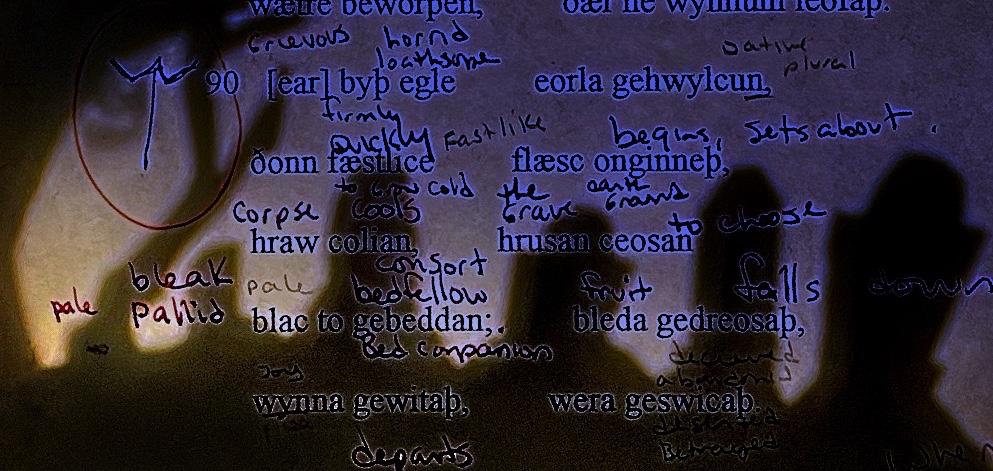 Old English uses very few words at a time, but in all the minimalism there’s a massive amount of meaning: often multiple meanings of the same word are intended, black is sometimes white, and frequently there’s a pun in there somewhere. To translate Old English we need to use more words than the original, and still it’s difficult to pack all that meaning back in. Translation fills graveyards of context and nuance, left behind to grow cold. What is lost by gaining? What do we kill dead? Alliteration and meter, the music makers of language. The beat, deceased, sounds abandoned. Look at this:
Old English uses very few words at a time, but in all the minimalism there’s a massive amount of meaning: often multiple meanings of the same word are intended, black is sometimes white, and frequently there’s a pun in there somewhere. To translate Old English we need to use more words than the original, and still it’s difficult to pack all that meaning back in. Translation fills graveyards of context and nuance, left behind to grow cold. What is lost by gaining? What do we kill dead? Alliteration and meter, the music makers of language. The beat, deceased, sounds abandoned. Look at this:
blac to gebeddan bleda gedreosaþ
Now say it:
black to yeh-bed-an blea-da yeh-dre-o-sath
There’s some sound in it, listen. Alliteration and beat. Three repetitions of B making a beat and there’s a pause in the middle: two parts sung as one statement. Or a call and response. Old English poetry has a … More
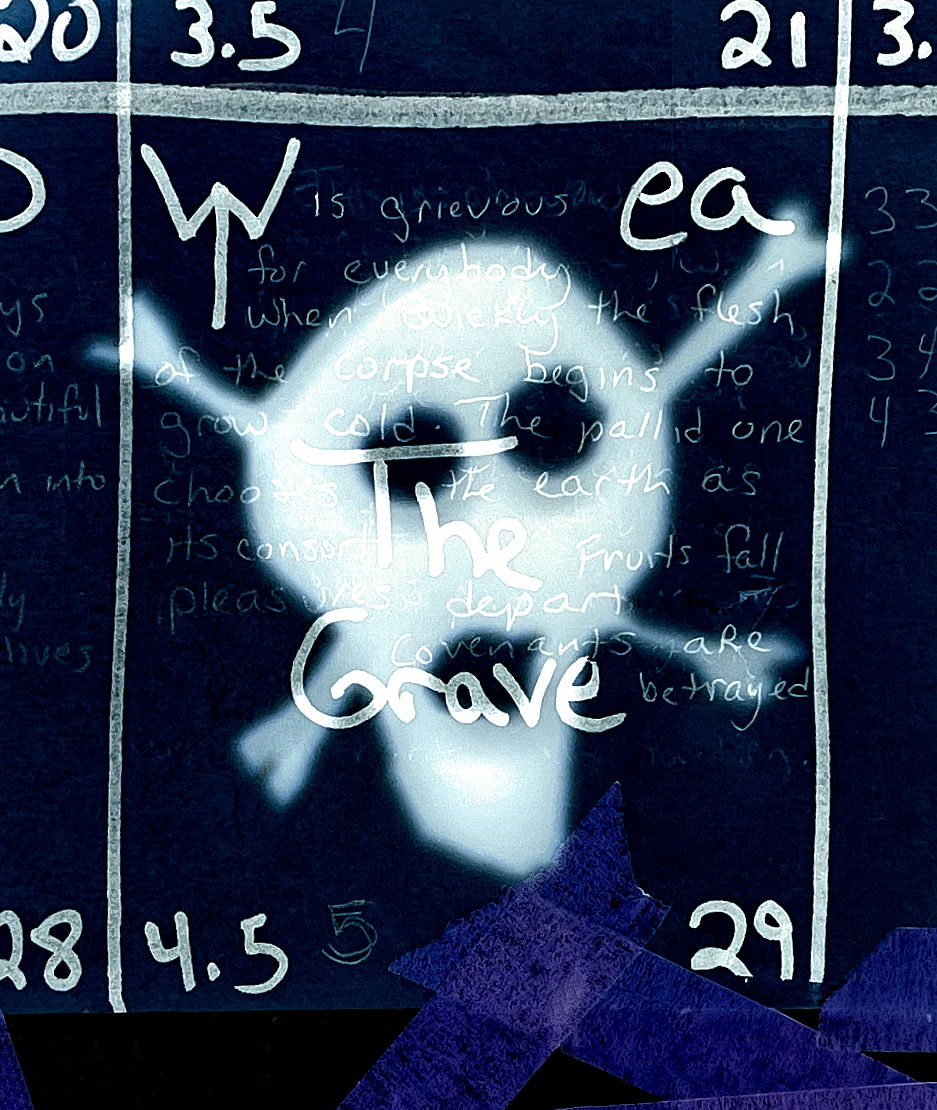
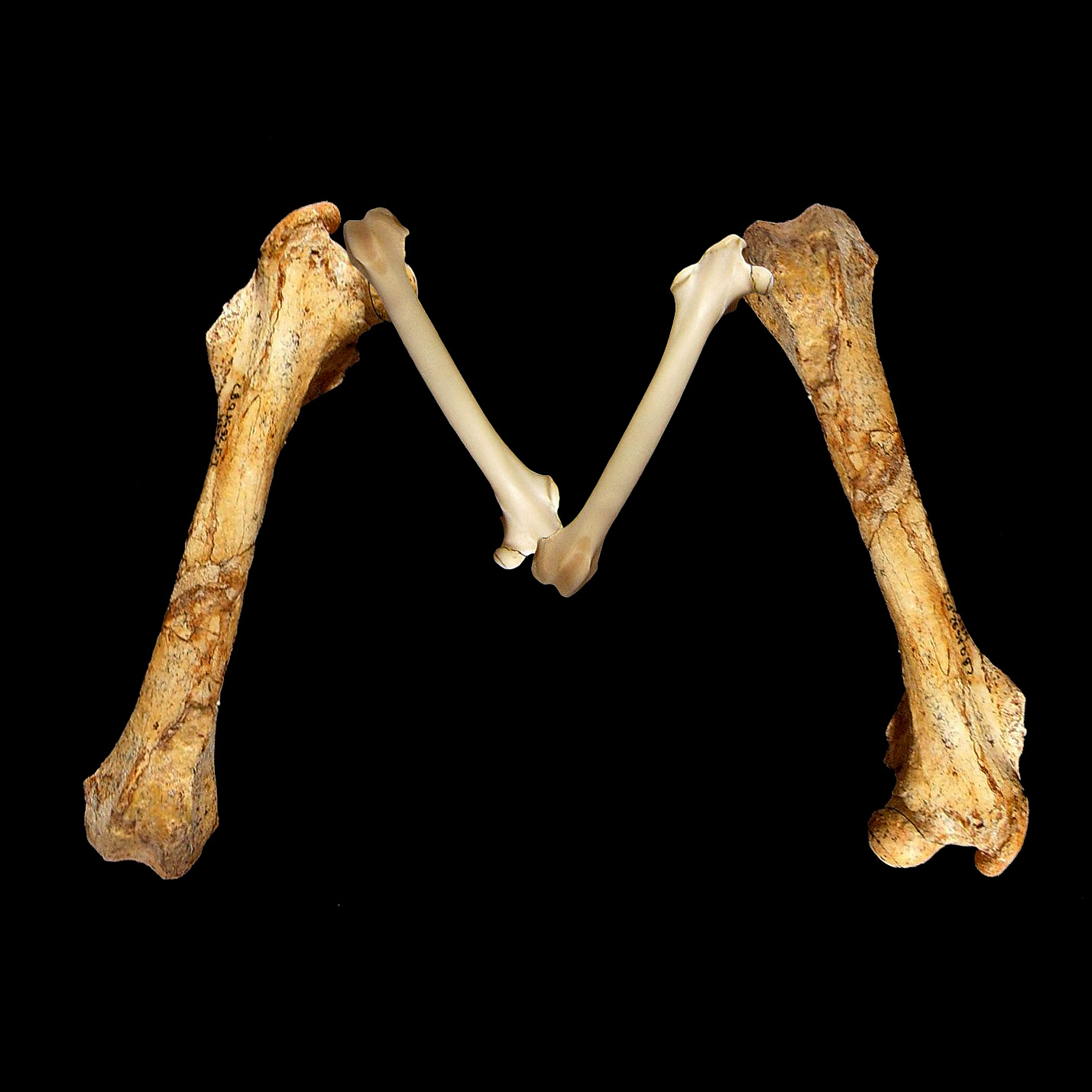

 Old English uses very few words at a time, but in all the minimalism there’s a massive amount of meaning: often multiple meanings of the same word are intended, black is sometimes white, and frequently there’s a pun in there somewhere. To translate Old English we need to use more words than the original, and still it’s difficult to pack all that meaning back in. Translation fills graveyards of context and nuance, left behind to grow cold. What is lost by gaining? What do we kill dead? Alliteration and meter, the music makers of language. The beat, deceased, sounds abandoned. Look at this:
Old English uses very few words at a time, but in all the minimalism there’s a massive amount of meaning: often multiple meanings of the same word are intended, black is sometimes white, and frequently there’s a pun in there somewhere. To translate Old English we need to use more words than the original, and still it’s difficult to pack all that meaning back in. Translation fills graveyards of context and nuance, left behind to grow cold. What is lost by gaining? What do we kill dead? Alliteration and meter, the music makers of language. The beat, deceased, sounds abandoned. Look at this: We die and
We die and 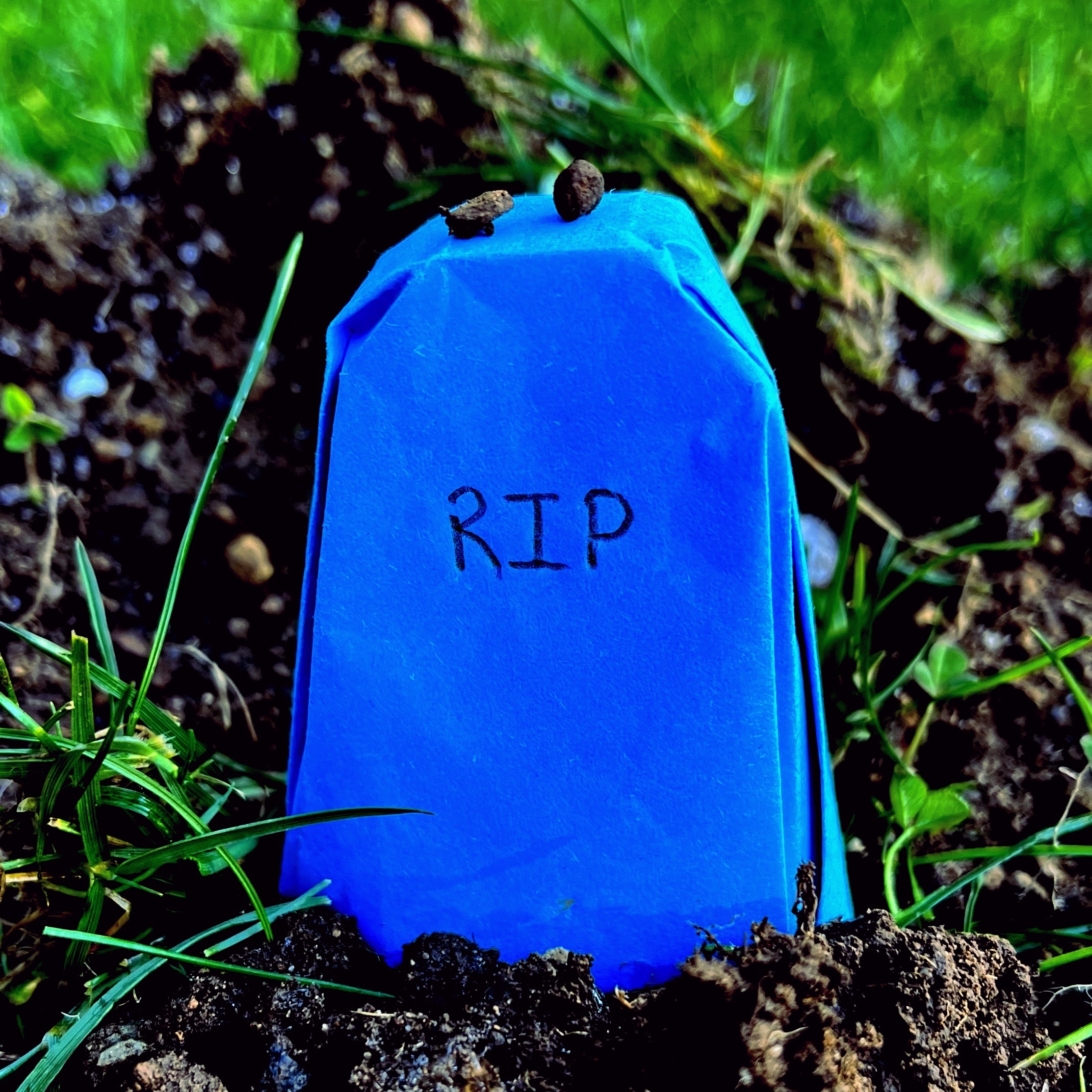 Tell me your future. Tell me, what do you hope will happen before you’re dead? And what is it you are afraid of? Never mind. Doesn’t matter what. The future is not in the what, it’s in the hope and the fear that you hold now, in the present. Whatever it is coming to you, or coming for you, is happening now. In here. In your mind. There is no other future. Well, there is the one thing that is going to happen, Ear says it for sure. It’s coming to you and it’s coming for you. You’ve got it coming. You’ll
Tell me your future. Tell me, what do you hope will happen before you’re dead? And what is it you are afraid of? Never mind. Doesn’t matter what. The future is not in the what, it’s in the hope and the fear that you hold now, in the present. Whatever it is coming to you, or coming for you, is happening now. In here. In your mind. There is no other future. Well, there is the one thing that is going to happen, Ear says it for sure. It’s coming to you and it’s coming for you. You’ve got it coming. You’ll 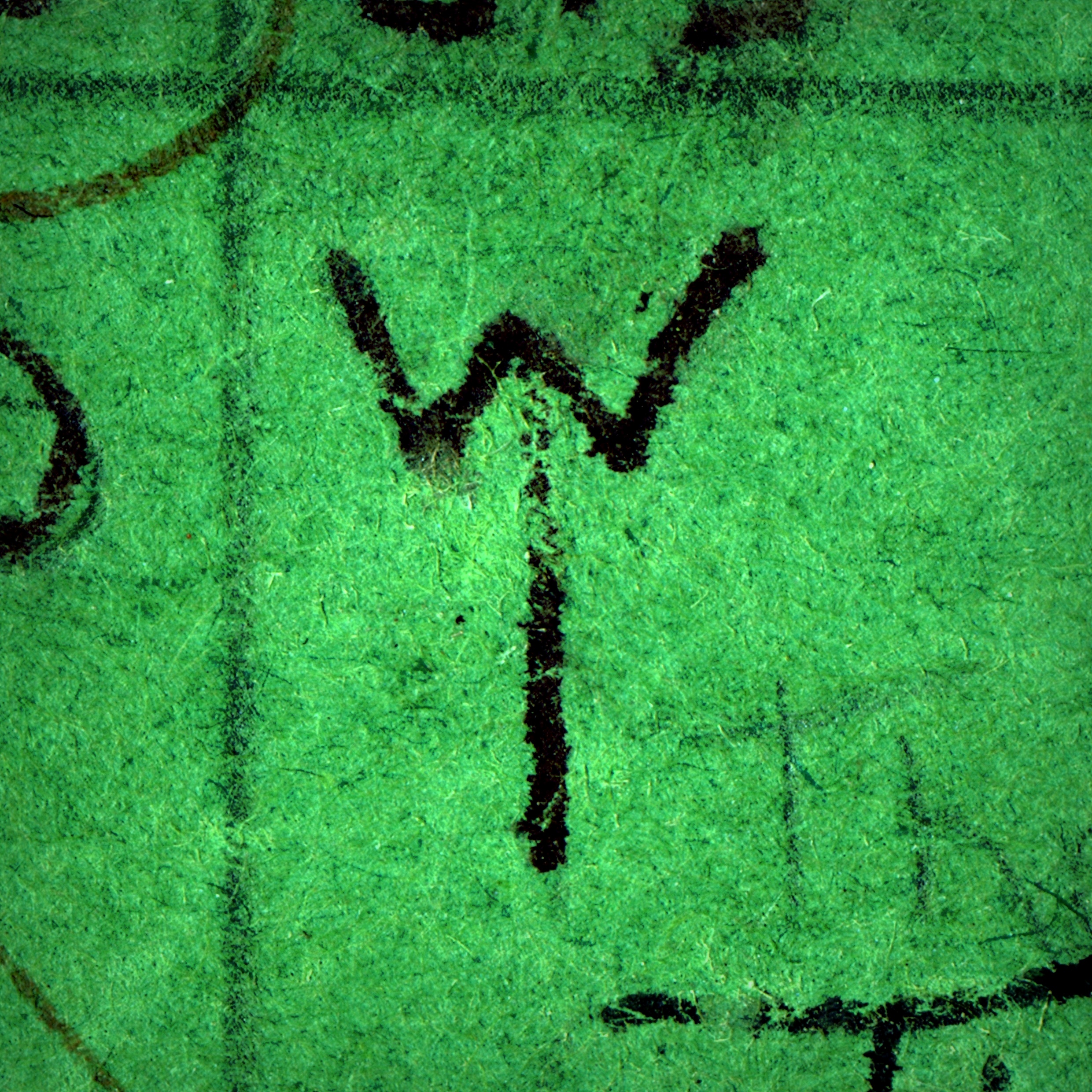 EA. Diphthong: a compound vowel. This one is deceased, we don’t use it any more. What did EA sound like? Maybe like EO, maybe like AU, emphasis on the E or the A because all Old English
EA. Diphthong: a compound vowel. This one is deceased, we don’t use it any more. What did EA sound like? Maybe like EO, maybe like AU, emphasis on the E or the A because all Old English 
